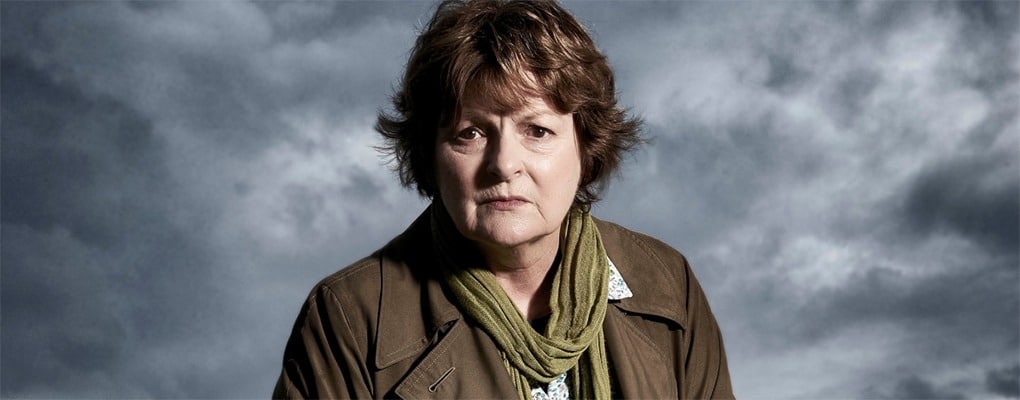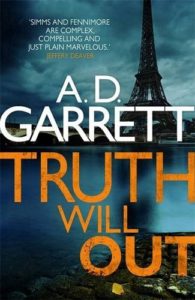Books
Where real life and fiction meet
As a child, my happy place was in the bath with a good book, and the only thing that’s changed over the years is that a nice glass of red has been added to the equation. But I’d never really thought about writers, or their writing process. That changed almost twenty years ago. I was a CSI in County Durham and we got a phone call from the Town Hall; there was a crime writing course going on and the tutor wondered if someone would go down there and talk about forensic issues. I didn’t have much on that day, so off I went.
The tutor turned out to be Ann Cleeves. We hit it off straight away; in fact, I enjoyed myself so much that afternoon that I went back for the rest of the course. I also agreed to help if ever she needed advice on forensic matters, and even handed over my phone number.
Ann introduced me to the world of writers. I’ve helped a fair number over the years, mostly explaining forensic and policing issues, sometimes adding only a small fact, but occasionally making suggestions that affect the entire plot.

When Ann’s Vera and Shetland novels were televised I was lucky enough to become their forensic & police adviser – so now I work with scriptwriters as well, which is a whole different ball game! A scriptwriter may want to involve me at the ‘treatment’ stage, or to check a draft script for factual accuracy, and sometimes they know what they want to happen and need a way to make it work. Like the time they wanted the poor victim to start reeling about in a deranged fashion, so that they could have him stagger through a campfire before falling off a cliff into the sea – was there a poison that would make him behave like that? And, by the way, one that didn’t show up in the initial toxicology screen?
I didn’t have a clue, so I had to go away and find out. Which is one reason why I enjoy advisory work, because I have to research new things, which keeps it fresh and interesting (it also means that in my ‘real’ job as a university lecturer I can astound my students with my knowledge of cutting edge forensic science!).
Writers and CSIs are similar in that we both spend our time poking about in other people’s lives and trying to understand why they do what they do. But in other ways we’re very different. Forensic examination is very systematic – yes, you do need to think laterally to work out what are likely to be the most fruitful sources of evidence at a crime scene, but once the physical examination starts there are strict rules and protocols, and every CSI must do each process the same way, every single time. To say writers don’t work like that is a massive understatement – it seems to me that there are as many approaches to writing as there are writers.
 Take Ann Cleeves for instance. With Ann the story often starts with a place. A fantastic, atmospheric place that’s just crying out for a dead body in the middle of it! She develops the story as she goes along, and usually has no idea ‘whodunit’ until the story works itself out. I can’t imagine many things more scary than having a publisher’s deadline looming, with no idea what happens next – but Ann loves it!
Take Ann Cleeves for instance. With Ann the story often starts with a place. A fantastic, atmospheric place that’s just crying out for a dead body in the middle of it! She develops the story as she goes along, and usually has no idea ‘whodunit’ until the story works itself out. I can’t imagine many things more scary than having a publisher’s deadline looming, with no idea what happens next – but Ann loves it!
In contrast, a couple of years ago I began collaborating with Margaret Murphy on a series of novels under her A D Garrett pseudonym. Margaret is an astonishingly good writer, but her approach is about as different to Ann’s as it could be. Margaret is a ‘plotter’. She knows how exactly the story will end before she starts writing. She writes a detailed synopsis – and I mean detailed – the synopsis for Truth Will Out ran to about forty pages. Which was just the start – we then batted it backwards and forwards, refining, changing, adding procedural and forensic detail…
Ann’s and Margaret’s approaches sit at opposite ends of a long continuum, their techniques so different the casual observer might not realize they were both practicing the same craft, yet with both writers the end results are amazing. So which way do I think is best? I’d love to tell you, but I’ve just had an e-mail from a script editor who urgently needs to know about the finer points of firearms licensing.



Please note: Moderation is enabled and may delay your comment being posted. There is no need to resubmit your comment. By posting a comment you are agreeing to the website Terms of Use.